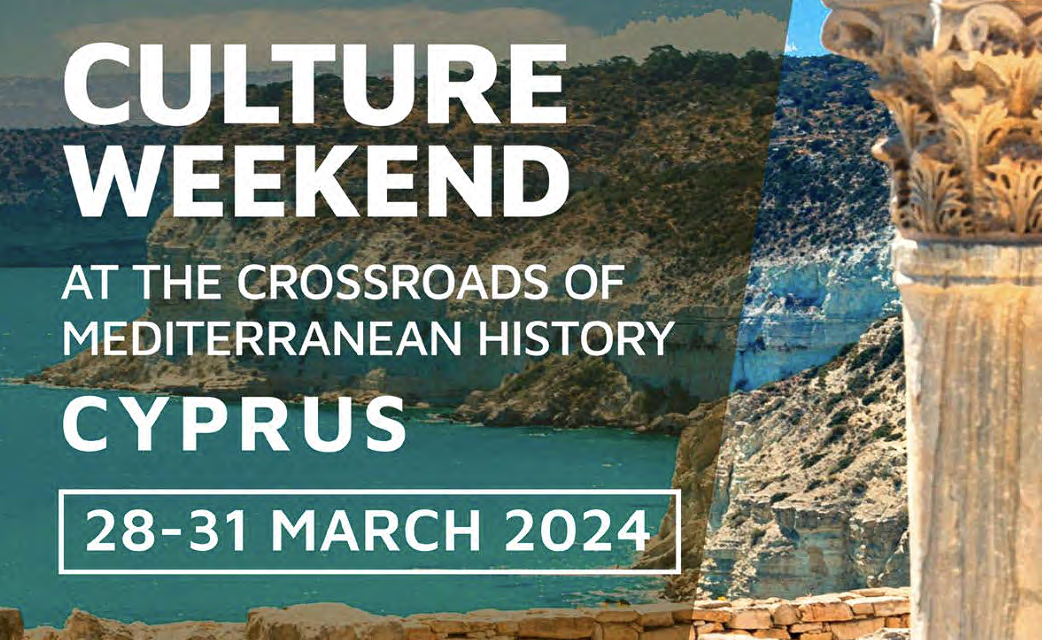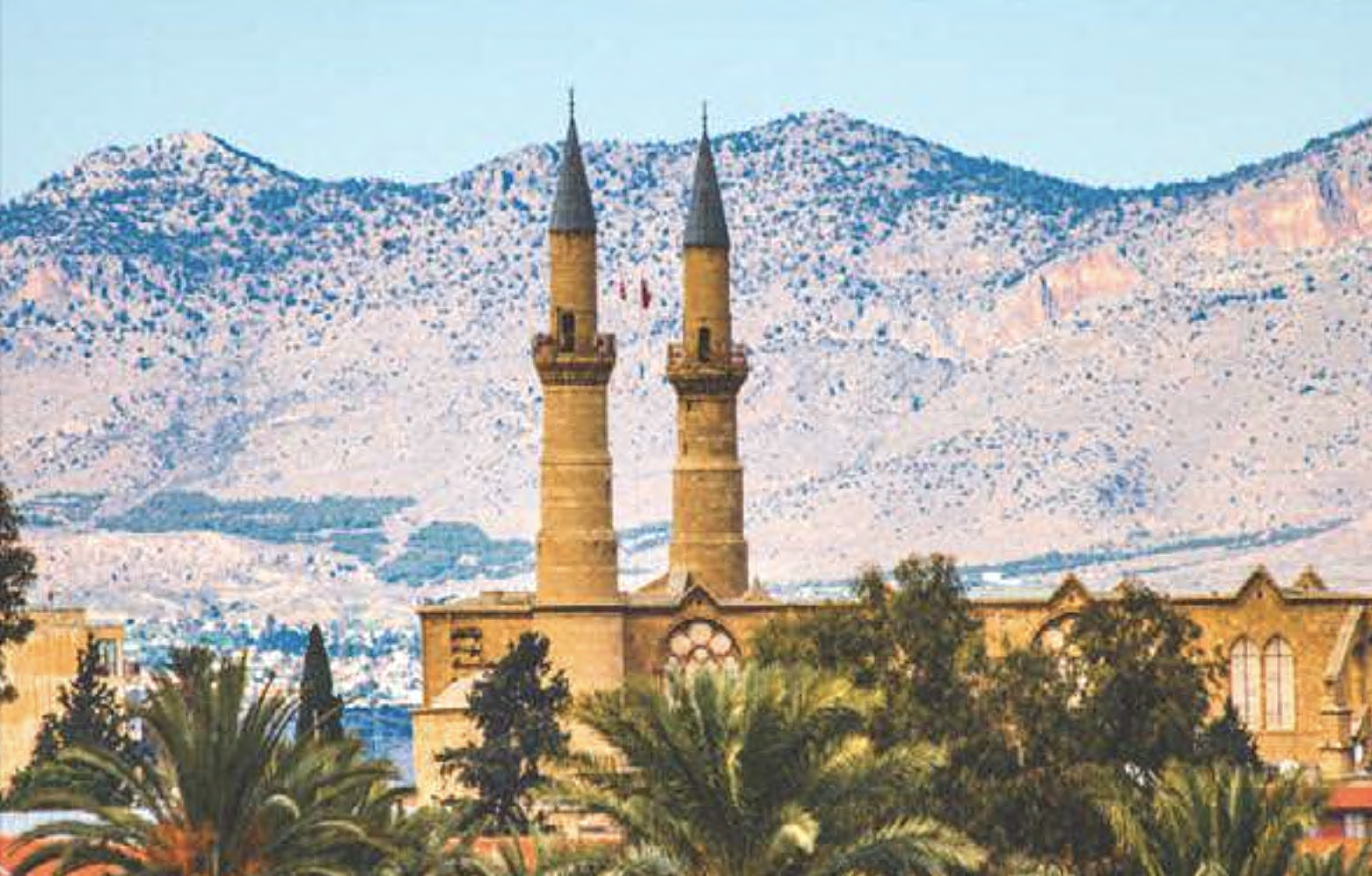
The second event of this year’s European Culture Weekend, organised under the aegis of the ECR Party, will take place between the 28th and the 31st of March in Cyprus, at the crossroads of Mediterranean history. The location chosen by the organisers is a special one given the historical importance and geostrategic positioning of Cyprus for the whole of Europe. Conference participants are expected to arrive on Thursday, the 28th of March and the first workshops will take place on Friday during the first part of the day. The topics to be discussed are “A Comparative Study of Northern and Southern Classical – Conservative thought” and “Tangible solutions for limited government”.
Workshop 1: Conservative thought in the current European context
Conservative thought in the European context manifests itself in a variety of ways, reflecting cultural, historical and social differences between regions. A comparative study of classical conservative thought between the northern and southern regions reveals the ideological diversity and unique approaches of these two distinct environments. In Nordic countries such as Sweden, Norway, Denmark and Finland, conservative thought is often characterised by an emphasis on social equality and the welfare state.
Nordic conservatism integrates cultural traditions and values into a policy framework that promotes extensive social service provision and a cooperative approach to the economy. Here, classical conservatives usually advocate maintaining a balance between the market and state intervention to ensure a fair and prosperous society. On the other hand, in southern European countries such as Italy, Spain and Greece, classical conservative thinking often has a stronger orientation towards tradition and conservative cultural values. Here, conservatives are often linked to cultural and religious heritage, promoting a more restrictive approach to social change. In the southern context, classical conservatism may seek to protect and promote traditional values, including family, religion and cultural identity. Another notable aspect is conservatism’s relationship with globalisation. In the Nordic countries, for example, conservatives may take a more open and pragmatic view of globalisation, seeing it as an opportunity to expand economic and cultural cooperation. By contrast, in southern countries, conservatives may be more resistant to the changes brought about by globalisation, wanting to preserve national autonomy and cultural identity. Another dimension is the conservative approach to migration and cultural diversity. In Nordic countries, conservative thinking may be more open to integrating immigrants and promoting cultural diversity, while in Southern countries, classical conservatism may be more oriented towards maintaining a traditional cultural identity and restricting immigration. Classical conservative thinking in northern and southern regions highlights the complexity and diversity of this ideology within Europe. Differences in approach to the state, the economy, globalisation and migration reflect the distinct historical and cultural contexts of these regions, contributing to the diversity of the European conservative landscape.
Workshop 2: Concrete solutions for limited government in European states
Limited government in a European state is an essential concept to ensure individual rights, fiscal responsibility and the protection of citizens’ fundamental freedoms. In a changing political and social climate, identifying and implementing concrete solutions becomes imperative to strengthen the principles of limited government. An essential first step is to reduce the size of government. The European state must promote administrative efficiency by eliminating unnecessary bureaucracy and strengthening institutional structures. This can be achieved by regularly evaluating government agencies and eliminating redundant or inefficient ones. Moreover, the use of digital technologies to streamline administrative processes can significantly contribute to reducing costs and increasing transparency. Another crucial aspect in achieving lean government is the review and simplification of legislation. A complex and redundant legal framework can lead to confusion and abuse by state authorities. Authorities therefore need to identify and eliminate unnecessary laws, adopting a responsible regulatory approach. Simplified and coherent legislation not only supports individual rights but also facilitates economic development by creating a more business-friendly environment. Involving citizens in decision-making is another vital element of limited government. Public consultations, referendums and increased transparency in the legislative process encourage accountability and direct connection between government and the people. Such active participation strengthens the legitimacy of government and encourages elected representatives to act in the interests of citizens. In addition, stimulating the economy through privatisation can contribute significantly to limited government. Transferring assets and services from the public to the private sector not only reduces government spending but also promotes innovation, efficiency and competitiveness. However, it is essential to implement appropriate regulatory mechanisms to prevent monopolies and abuses. Concrete solutions to limited government in a European state require a holistic and collaborative approach. Reducing the size of government, simplifying legislation, involving citizens and stimulating the economy through privatisation are key elements in this process. By adopting these measures, European states can build a government framework that ensures the protection of individual rights and promotes sustainable prosperity in a responsible and efficient manner.
After the two workshops in the first part of Friday, those attending the European Culture Weekend conference will have the opportunity to enjoy a tour of the beautiful Lefkara village. Saturday, the 29th of March is the ECR Party day. The conference organised by ECR Party will address three topical and extremely important issues for European countries: “The conservative approach to a sustainable European energy mix”, “Strategic opportunities for security on the Mediterranean” and “A Conservative and ambitious plan for Europe”.

Speakers at the ECR conference in Cyprus will be :
Christos Christou (President of ELAM, MP, Cyprus), Luca Ciriani (Ministry for the relation with Parliament, Italy) Kathleen Doherty (American diplomat and former Ambassador of the United States of America to Cyprus), Antonio Giordano (ECR Party Secretary General, MP, Italy), Hannes Gissurasason (Professor Emeritus of political science at the university of Iceland), Lavinia Mennuni (MP, Italy) Vojtech Munzar (Chamber of Deputies, MP, Czechia), George Papanasasiou (Minister of Energy, Cyprus), Niccola Procaccini(ECR group Co-Chairman, MEP, Italy), Mauro Rotelli (Chairman, Committee on Environment, Land and Public Works, MP, Italy). They will debate the three topics listed above in three panels.
Panel 1: Security and energy challenges in a conservative Europe
Europe, with its rich history and cultural diversity, currently faces many challenges in the areas of security and energy. In a context where conservative tendencies are becoming more and more apparent, EU Member States face complex dilemmas and difficult decisions to ensure a secure and sustainable future. On the security front, geopolitical changes and international tensions have increased pressure on European states to strengthen their defence capabilities. In a conservative Europe, the idea of investing heavily in armed forces and advanced technologies is becoming increasingly accepted, with the aim of protecting citizens and the fundamental values of the European Union. However, this approach is not without its challenges. While some countries see the strengthening of military capabilities as essential to deal with today’s threats, others place greater emphasis on diplomacy and international cooperation. This diversity of views can create tensions within the EU and requires sustained efforts to find common and equitable solutions. Alongside security challenges, conservative Europe also faces dilemmas in the energy sector. Climate change and increased dependence on imported energy resources have given impetus to debates on how to diversify sources and transition to renewables. In a conservative Europe, these changes often imply resistance to abandoning traditional energy sources such as coal and natural gas. This conservative attitude can slow down the adoption of sustainable and innovative energy policies. However, there are also examples of countries that have managed to strike a balance between conservatism and progress by investing in clean technologies and promoting energy efficiency. The challenge is to convince all Member States to make a common commitment to a greener and more sustainable Europe. Another energy issue is security of supply. Conservative Europe faces risks due to dependence on external suppliers and transit routes. In this context, the development of domestic resources and secure transport infrastructure becomes essential to ensure stable supply and reduce vulnerability to geopolitical pressures. Finally, managing security and energy challenges in a conservative Europe requires a balanced and cooperative approach. Member States must overcome their ideological differences and work together to develop common policies and sustainable solutions. In addition, it is essential to promote innovation and adaptation to global change to ensure a secure and prosperous future for all European citizens.
Panel 2: Strategic opportunities for security in the Mediterranean
The Mediterranean, located at the crossroads of Europe, Africa and Asia, is a region of major strategic geopolitical importance. In the current context of political, economic and security developments, strategic opportunities arise for improving security in this vital area. This paper explores these opportunities and concrete ways to enhance security in the Mediterranean.
Firstly, strengthening regional cooperation is essential to manage common threats. States in the region could benefit significantly from the exchange of information and effective coordination in the fight against terrorism, arms smuggling and human trafficking. Establishing strong mechanisms for dialogue and collaboration between the riparian states would contribute to strengthening security in a sustainable way.

Secondly, the development of regional initiatives for the management of humanitarian crises and natural disasters would bring substantial security benefits to the region. By coordinating efforts in emergency situations, Mediterranean states could respond more effectively to the challenges posed by climate change, floods or earthquakes. These efforts would help strengthen solidarity between states and increase their capacity to manage crises in an effective and coordinated manner.
Another crucial aspect in improving security in the Mediterranean is the management of natural resources and critical infrastructure. Energy resources, such as natural gas and oil, are key elements in the economy and security of states in the region. By developing common energy policies and resilient infrastructure, Mediterranean states can reduce dependence on external suppliers and ensure stable and secure access to these resources. Strengthening partnerships with international organisations and states outside the region is essential for security in the Mediterranean. The involvement of the European Union, the United Nations and other global actors can bring additional financial resources and expertise to bear in managing the specific challenges of the area. Collaboration with non-riverine states can contribute to the creation of global initiatives to maintain peace and security in a region of major geostrategic importance. Strategic opportunities for security in the Mediterranean rely on enhanced regional cooperation, effective management of humanitarian crises, development of critical infrastructure and involvement of international partners. By addressing these issues with responsibility and determination, Mediterranean states can build a safer and more prosperous future for all inhabitants of this complex and fascinating region.
Panel 3: A conservative and ambitious plan for Europe
In the context of social and political change, a conservative and ambitious plan for Europe is essential to ensure a stable and sustainable future. This plan focuses on traditional values but also integrates innovative solutions to meet contemporary challenges. First and foremost, strengthening cultural identity and traditional European values is a central component of this plan. By promoting education that encourages knowledge and respect for cultural heritage, social cohesion and European identity can be strengthened. Secondly, the conservative and ambitious plan addresses economic issues by supporting entrepreneurship and innovation. By stimulating the private sector and creating a business-friendly environment, Europe can generate sustainable economic growth and jobs while maintaining conservative principles of fiscal responsibility. At the same time, particular attention is paid to preserving the environment by adopting responsible environmental policies. The use of renewable energy sources and the promotion of sustainable practices in industry are key aspects of this conservative plan, helping to protect the environment for future generations.



 Subscribe
Subscribe